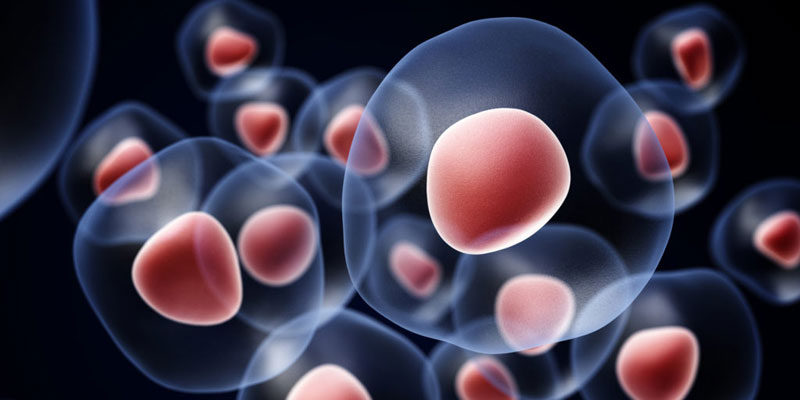
How Stem Cells Help Degenerative Discs
Spinal discs degenerate for a variety of reasons. Cells within a disc can die naturally as we age, but the process is generally exacerbated by genetics, obesity, and smoking.
Traditional treatment for lumbar degenerative disc disease includes over-the-counter pain and anti-inflammatory medications, physical therapy, spinal mobilization, and surgery. However, the use of stem cells as a treatment has been rapidly gaining popularity.
Stem cells are cells that are not specific to any one body part or function. They have the potential to develop into any type of cell in the body, and they divide and renew quickly, making them ideal for healing.
When injected into the intervertebral discs, stem cells appear to exert an anti-inflammatory and immunomodulatory effect, relieving pain for patients with degenerative disc disease. Stem cell therapy also may slow continued degeneration.
Where Do Adult Stem Cells Come From?
Adult stem cells are different from the controversial embryonic stem cells that come from embryos. Adult stem cells are found in many organs and tissue throughout the adult body, including the brain, heart, bone marrow, blood, skin, teeth, and liver. They can be autogenous, meaning a patient’s own stem cells are removed from one area of the body to be used in another. Or, adult stem cells can be donated.
For the purposes of bone fusion or disc regeneration, autogenous stem cells are used. They are harvested from the marrow of the patient’s iliac crest (part of the hip bone) in an operating room under general anesthesia. They are then injected back into the area of the spine needing treatment.
What Else Is Stem Cell Therapy Used For?
Stem cell research has been ongoing for decades, but we’re really just scratching the surface in discovering what stem cell therapy can do. In addition to degenerative disc disease, stem cells are being studied for use in treating spinal cord injuries, stroke, diabetes, heart disease, arthritis, and more.
Please contact our office at (516) 419-4480 or (718) 215-1888 to arrange an appointment with our Pain Management Specialist, Dr. Jeffrey Chacko.













